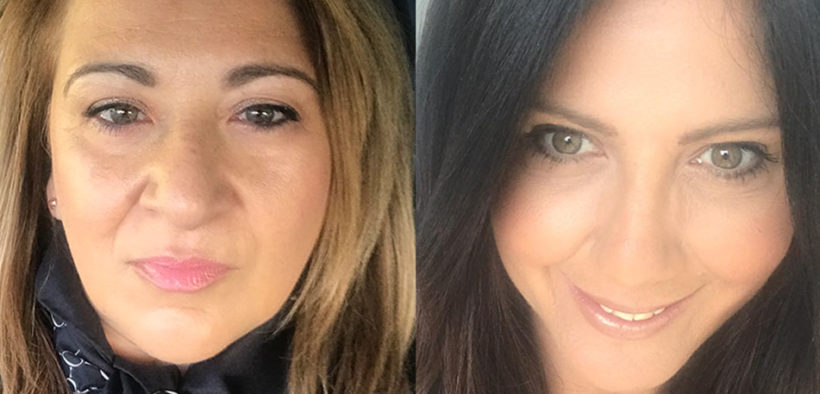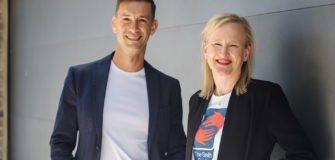Phyllis Traficante and Anna Skolarikis are the founders of Restoring Resilience, a partnership aiming to help organisations and individuals in the treatment and resolution of stress, overwhelm, and trauma. Both are trained psychotherapists and have been conducting workshops all around the country to help spread mental health awareness.
In this second of two-part series, we talked to Anna about her own experiences as a mental health practitioner, and why she believes carers should also be taking care of their own mental health.
In case you missed it: We also talked to Phyllis Traficante about the importance of mental health awareness amidst the COVID-19 pandemic.
Third Sector: We know you’re an experienced psychotherapist with particular focus on people who are working or living with stress, overwhelm and trauma. Why did you choose to specialise in this area?
Anna Solarikis: As a young girl, visiting my grandmother in an institution, on a Sunday afternoon was a familiar and regular occurrence. My grandmother was a survivor of WW2, she witnessed many unimaginable horrors that come with surviving a war. I was acutely aware of trauma and the devastating impact it can have on individuals and families.
We know adversity, stress and trauma affects brain development, immune and hormonal systems and even how DNA is read and transcribed. The Adverse Childhood Experience Survey reports adversity increases the risk of 7 out of 10 leading causes of death. We can see a 20-year reduction in life expectancy with higher exposures to stress and adversity. Scientists are now able to identify biological markers that confirm traumas/stress physiology can and does pass from one generation to the next.
For as long as I can remember, healing from inter-generational trauma and restoring the health and wellbeing of my lineage has been a driving force. Learning the roadmap(s) to treating and resolving the psychobiological impact of trauma, stress and overwhelm has not been so much a choice but a burning passion of mine. It has been incredibly rewarding over recent years sharing and teaching skills to clients, so they too can make their way out of states of freeze, flight and/or fight. It is a pleasure co-facilitating people’s process of coming back safely into their bodies and restoring a state of homeostasis and equanimity.
TS: You also have extensive experience with the Victorian Aboriginal Child Care Agency (VACCA). In all those years working with the agency, could you share some of the most important lessons that you learned that you’ve applied in your present work?
AS: Working at VACCA is a privilege. It comes with challenges and provides rich learning opportunities. As a white woman, in a position of leadership I am acutely aware of both my power and privilege. My position may be triggering and evocative for some Aboriginal staff but I know it also presents a stunning opportunity to respond in ways that foster repair, growth and allyship. My primary role at VACCA is to support staff from a trauma informed perspective to self-determine and develop skills that support and empower Aboriginal community.
I believe the real power and fuel in any organizations is generated by the quality of relationships. Cocreating workplace cultures where staff can thrive and flourish is my intention, vision and purpose as the Clinical Supervisor.
ICYMI: 4 South Australian towns to receive 10-year funding for mental health initiatives
TS: Why is it important for organizations, practitioners, families and carers to be aware of their state of mental health even as they provide care for suffering patients?
AS: Have you heard the saying you can’t pour from an empty cup and in the case of an emergency we must put the oxygen mask on first before attending to others? In roles of carer/helper, frontline worker, parent, teacher, police officer etc. the health wellbeing of the worker needs to be prioritized. Trauma, stress and overwhelm is contagious and if workers do not have frameworks and processors to protect them, they are at inevitable risk of overwhelm and burnout.
When working in mental health it is essential to have the skill to track your own bodies stress physiology and orient to interventions to somatically deactivate, decompress and release. It is in our inability to release those stress levels that the charge becomes trapped and wreaks havoc in our minds, bodies and on our nervous system. Practitioner’s that don’t have this understanding and protective framework, are risking the inherent devastating impact that comes with being in the presence of chronic stress, trauma and overwhelm.
TS: How has the ongoing COVID-19 pandemic affected your work in Restoring Resilience? What steps have you taken to overcome them?
AS: The need for mental health support has grown exponentially during the pandemic. As a therapist and trauma specialist, I have been vigilant in tracking my own autonomic nervous system to ensure I am attending to people from a place of presence and sustainability. Closing my books, saying no, reducing working hours has been important boundary to support my work and clients through this pandemic.
The need to rest, reset, regenerate, replenish, metabolize and integrate are very important. As work demands increase it is paramount, I schedule pauses and spaces. It is in this balance I am able to work in healthy, consistent and sustainable way.
I have learnt to listen to my physiology so that I work within my window of presence and availability. I ensure my week consists of time to attend to me, time to spend with my partner/family and friends. I ensure all important parts of my life are prioritized, attended to and nourished. This is what supports and protects me, ensures my clients get the best of me and allows me to continue working in the field of mental health and trauma.
TS: What is your favourite part of being co-founder of Restoring Resilience?
AS: My relationship with my business partner. We have forged a solid, strong and generous relationship over the years. We bring this to every training and workshop. We practice all that we teach. We support each other, we nurture and nourish each other, we listen, we share, we attend to one another with respect, kindness and care. This relationship has been the main generator of all that I have accomplished.
Writing up the curriculum for our workshops in Restoring Resilience has been an amazing experience. It is an amalgamation of all we do, who we are, where we come from. Our hope is what we offer will be practiced, taught and implemented in supporting roles, in teams and within organisations.
I especially enjoy collaborating and co-designing workshops with companies and organisations that are attuned, specific and tailor made. It is in this place of deep listening and attunement that change is possible in the culture and ecology of organisational systems.
Related: Charity blends love of classic cars with mental health awareness for veterans
TS: Where do you see Restoring Resilience and the rest of your work in the next five years?
AS: Our vision is to assist organizations and teams to adopt and implement practices that support staff and teams to work from a place of health and sustainability. To strengthen relationships and co-create cultures that are accountable, ethical and committed to protecting staff from vicarious trauma, stress and burnout.
To provide psycho-education in organizational settings so individuals and teams are working from psycho-biological perspective. To continue teaching bottom-up somatic interventions that support de-activation, regulation, health and wellbeing.
We want to support leaders to deepen their relational awareness, understand their inherent power to influence, to address issues emerging from staff, teams and organizations from both an egological and ecological perspective.
We look forward to continuing to support families and parents with workshops so they can navigate and respond to their child’s developmental challenges from a place of union and intimacy.
Paulo Rizal is a content producer for Third Sector news. He has working experience in journalism, SEO, and social media marketing.


































































































































































